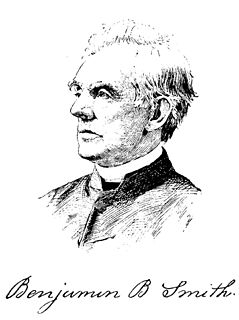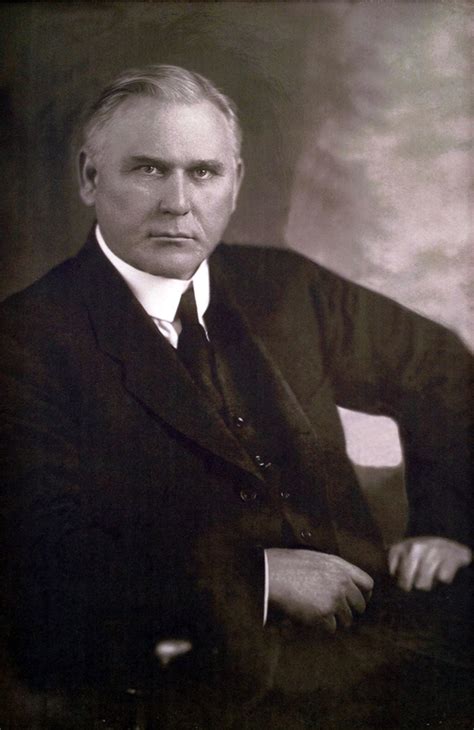Top 370 Augustus Caesar Quotes & Sayings
Explore popular Augustus Caesar quotes.
Last updated on November 19, 2024.
Well," Peter Van Houten said, extending his hand to me. "It is at any rate a pleasure to meet such ontologically improbable creatures." I shook his swollen hand, and then he shook hands with Augustus. I was wondering what ontologically meant. Regardless, I liked it. Augustus and I were together in the Improbable Creatures Club: us and duck-billed platypuses.
Augustus, perhaps you’d like to share your fears with the group.” “My fears?” “Yes.” “I fear oblivion,” he said without a moment’s pause. “I fear it like the proverbial blind man who’s afraid of the dark.” “Too soon,” Isaac said, cracking a smile. “Was that insensitive?” Augustus asked. “I can be pretty blind to other people’s feelings.
Augustus: “You probably need some rest.” Me: “I’m okay.” Augustus: “Okay.” (Pause.) “What are you thinking about?” Me: “You.” Augustus: “What about me?” Me: “‘I do not know which to prefer, / The beauty of inflections / Or the beauty of innuendos, / The blackbird whistling / Or just after.’” Augustus: “God, you are sexy.” Me: “We could go to your room.” Augustus: “I’ve heard worse ideas.
Luke [the gospel writer] screws up his dating by tactlessly mentioning events that historians are capable of independently checking. There was indeed a census under Governor Quirinius - a local census, not one decreed by Caesar Augustus for the Empire as a whole - but it happened too late in 6 AD, long after Herod's death.
Max Weber was right in subscribing to the view that one need not be Caesar in order to understand Caesar. But there is a temptation for us theoretical sociologists to act sometimes as though it is not necessary even to study Caesar in order to understand him. Yet we know that the interplay of theory and research makes both for understanding of the specific case and expansion of the general rule.
There were five others before they got to him. He smiled a little when his turn came. His voice was low, smoky, and dead sexy. “My name is Augustus Waters,” he said. “I’m seventeen. I had a little touch of osteosarcoma a year and a half ago, but I’m just here today at Isaac’s request.” “And how are you feeling?” asked Patrick. “Oh, I’m grand.” Augustus Waters smiled with a corner of his mouth. “I’m on a roller coaster that only goes up, my friend.
I nodded. I liked Augustus Waters. I really, really, really liked him. I liked the way his story ended with someone else. I liked his voice. I liked that he took existentially fraught free throws. I liked that he was a tenured professor in the Department of Slightly Crooked Smiles with a dual appointment in the Department of Having a Voice That Made My Skin Feel More Like Skin. And I liked that he had two names. I’ve always liked people with two names, because you get to make up your mind what you call them: Gus or Augustus? Me, I was always just Hazel, univalent Hazel.
He [Julius Caesar] learned that Alexander , having completed nearly all his conquests by the time he was thirty-two years old, was at an utter loss to know what he should do during the rest of his life, whereat Augustus expressed his surprise that Alexander did not regard it as a greater task to set in order the empire which he had won than to win it.
He was Caesar and Pope in one; but he was Pope without Pope's pretensions, Caesar without the legions of Caesar: without a standing army, without a bodyguard, without a palace, without a fixed revenue; if ever any man had the right to say that he ruled by the right divine, it was Mohammed, for he had all the power without its instruments and without its supports.
Why, friends, you go to do you know not what: Wherein hath Caesar thus deserved your loves? Alas, you know not: I must tell you then: You have forgot the will I told you of. . . . . Here is the will, and under Caesar's seal. To every Roman citizen he gives, To every several man, seventy-five drachmas. . . . . Moreover, he hath left you all his walks, His private arbours and new-planted orchards, On this side Tiber; he hath left them you, And to your heirs for ever, common pleasures, To walk abroad, and recreate yourselves. Here was a Caesar! when comes such another?
That utterance of Jesus, "Render therefore unto Caesar the things which are Caesar's, and unto God the things that are God's," is one of the most revolutionary and history-making utterances that ever fell from those lips divine. That utterance, once and for all, marked the divorcement of church and state. It marked a new era for the creeds and deeds of men.
The omission of an expected conjunction is called an asyndeton. Caesar is supposed to have said about Gaul: I came, I saw, I conquered. Lincoln concluded the Gettysburg Address, That government of the people, by the people, for the people, shall not perish from the earth.Caesar seems to have omitted his conjunction to speed things up; he is emphasizing how quickly the conquest of a place follows from its being sighted by a great and ambitious general. Lincoln's omission is more subtle
For if I should not believe all that is written by Historians, of the glorious acts of Alexander, or Caesar; I do not think the Ghost of Alexander, or Caesar, had any just cause to be offended; or any body else, but the Historian. If Livy say the Gods made once a Cow speak, and we believe it not; we distrust not God therein, but Livy. So that it is evident, that whatsoever we believe, upon no other reason, then what is drawn from authority of men only, and their writings; whether they be sent from God or not, is Faith in men only.
You must not imagine that Papa or I have the least notion of compelling you to marry anyone whom you hold in aversion, for I am sure that such a thing would be quite shocking! And Charles would not do so either, would you, dear Charles?”(Elizabeth Ombersley) “No, certainly not. But neither would I consent to her marriage with any such frippery fellow as Augustus Fawnhope!” “Augustus,” announced Cecilia, putting up her chin, “will be remembered long after you have sunk into oblivion!” “By his creditors? I don’t doubt it.
So, here’s what you do. You win, you go home. She can’t turn you down then, eh?” says Caesar encouragingly. “I don’t think it’s going to work out. Winning…won’t help in my case,” says Peeta. “Why ever not?” says Caesar, mystified. Peeta blushes beet red and stammers out. “Because…because…she came here with me.
We were sitting there on the couch together, and he pushed himself up to go but then fell back down onto the couch and sneaked a kiss onto my cheek. “Augustus!” I said. “Friendly,” he said. He pushed himself up again and really stood this time, then took two steps over to my mom and said, “Always a pleasure to see you,” and my mom opened her arms to hug him, whereupon Augustus leaned in and kissed my mom on the cheek. He turned back to me. “See?” he asked.
Discussing the attempts of Augustus' generals to add to the extent of the Roman Empire early in his reign:
The northern countries of Europe scarcely deserved the expense and labour of conquest. The forests and morasses of Germany were filled with a hardy race of barbarians, who despised life when it was separated from freedom; and though, on the first attack, they seemed to yield to the weight of the Roman power, they soon, by a signal act of despair, regained their independence, and reminded Augustus of the vicissitude of fortune.
But I have to confess, I'm glad you two had at least a few months of happiness together." I'm not glad," says Peeta. "I wish we had waited until the whole thing was done officially." This takes even Caesar aback. "Surely even a brief time is better than no time?" Maybe I'd think that, too, Caesar," says Peeta bitterly, "If it weren't for the baby.
Around the time of the Terran Caesar Augustus, a Martian artist had been composing a work of art. It could have been called a poem, a musical opus, or a philosophical treatise; it was a series of emotions arranged in tragic, logical necessity. Since it could be experienced by a human only in the sense in which a man blind from birth might have a sunset explained to him, it does not matter which category it be assigned.











































